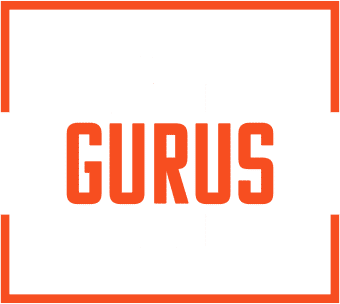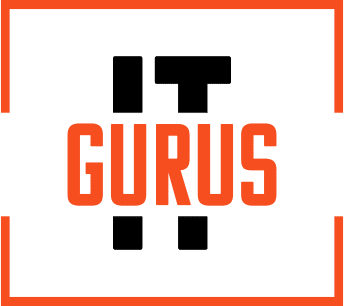When your company invests in new information technology (IT) solutions to expand your operations, it is essential that you have a support system in place to uphold the quality and strength of your IT infrastructure. However, as your business’s technology solutions become more complex to cope with the market and its customers, this support system may require you to encounter various levels of IT support.
Tiered technical support should not be viewed as something intimidating. Instead, it is a worthwhile arrangement that can help businesses like yours resolve IT problems for greater technical efficiency. This guide contains all the information company owners and business leaders need on what IT support actually is and the different levels of support that a provider can offer them.
An explanation of IT support
Offering both remote and onsite services, IT support is a technology support service provided by tech companies called managed service providers (MSPs). In these types of arrangements, MSPs can serve as a type of technical support team that can help businesses with several IT issues, from troubleshooting to disaster recovery and data backup services.
Staffed by specialist IT professionals with expertise in different disciplines of IT, support experts seek to upgrade and enhance the functionality of their client’s IT networks and systems. They can also serve as an IT support consultant, offering advice on how to keep systems running efficiently for a seamless employee experience.
At the same time, all the moves technical support personnel make are done in your organization’s best interests. In this way, support specialists are not just there to help you with your IT problems—they are present to keep your business’s products and services (upheld by your IT infrastructure) readily available for the benefit of your customers.
6 use cases for IT support
Across industries, the use cases of IT support share a common root—tackling and resolving IT inefficiencies. Technology support services can be used for several reasons, including the following:
- Configuring and deploying software: Helping organizations install any necessary software on their devices, and configuring it to meet their needs.
- Providing technical assistance: Answering users’ questions on anything to do with their systems with detail and respect.
- Maintenance: Supporting the day-to-day operations of IT systems via monitoring and maintenance.
- Testing solutions: Vetting any piece of technology (software and hardware) to determine its suitability for the client.
- Security patching: Ensuring that the system is up to date with the latest security updates, patches, and configurations.
- Monitoring system performance: Keeping an eye on the performance of the system to identify dips in functionality. Support specialists can also provide advice on how to optimize your business technology solutions for better performance.
An IT support consultant’s job is to uphold your company’s IT solutions to improve the employee experience and, by extension, the customer experience. Downtime can cost your organization $5,600 per minute. With the different IT support levels assisting you and your business, you can mitigate the likelihood of experiencing downtime.
IT support levels: What are they?
Technology support services can be split up into 5 levels (or tiers) meant to address technical issues based on how complex they are. Typically, issues that can be solved by you and your team are placed into the lowest tier (tier 0). Any technical problem that requires the skills of an IT support consultant will be placed into levels 1 to 4.
It should be pointed out that IT support levels are not set in stone for businesses. So, do not be alarmed if you encounter support tiers that may look different from others.
Level 0 provides you with basic support. This stage is for issues that are easily solvable for individuals of any technical skill level. It requires you to find information through sources such as online tutorials, frequently asked questions (FAQs), catalogs, and more. As level 0 is the lowest tier, the chances of you working with an IT support consultant are quite low.
Level 1 provides you with support specialists that offer everyday services that are not highly complex. This can include services such as performance assessments for software solutions or resets involving usernames and passwords. Level 1 technology support services use standard operating procedures (SOPs) to handle client issues.
Level 2 IT support levels are typically staffed by IT experts that already possess a solid understanding of your company’s IT infrastructure and its role in your business operations. Level 2 tech workers conduct their troubleshooting through the backend of a client’s systems for a deeper look into the technical makeup of the network. It allows support specialists to locate the exact cause of the problem, thereby finding an effective solution.
If your organization’s technical problems are placed at this level, it means that they are quite complex. Support staff that work in tier 3 are considered subject matter experts as they have the means to reconstruct your technical problems with their own tools to grant themselves a deeper understanding of the issues at play. This allows for faster resolutions. They also document information that is passed to the support specialists in the lower levels to increase their knowledge of prospective IT problems and how to address them.
At level 4, the issues plaguing your IT infrastructure may be out of your regular support provider’s service offerings. Take printing as an example. In the chance that your usual IT support consultant does not have printer support as one of their services, they will pass your difficulty to another entity that does offer that kind of support. While the other entity assists you with their technology support services, your normal support provider will liaise with them to keep you in the loop.
What could happen if a business does not invest in IT support?
Business technology solutions support the daily operations and overall vision of a company. And with enterprises expected to continue investing heavily in IT services and software in 2023, the question business leaders should be asking themselves is, “When its technology fails, does my organization have the means to bounce back securely and efficiently?”
Technical issues, regardless of the IT support levels they fit in, are obstacles in your company’s path. By not leveraging technology support services, you run the risk of the following:
- Reduced efficiency in business and employee processes due to malfunctioning IT systems.
- Increased risk of unauthorized access to sensitive data, which could lead to data breaches and security risks.
- Increased downtime for employees, leading to lost productivity and potentially lost revenue.
- Potential for financial losses due to costly repairs of systems (a lack of preventative measures).
- Inability to leverage the latest technology, reducing your organization's competitive advantage.
- Potential for poor customer satisfaction due to longer wait times, lack of services, low-quality products, etc.
- Increased risk of non-compliance with industry regulations or laws due to lack of IT support.
What are the business benefits of IT support?
Technological efficiency is a goal that all businesses should strive for. With responsive, reliable IT support maintaining your business technology solutions, you can benefit from the following:
- Improved operational efficiency.
- Enhanced customer service.
- Increased system and data security.
- Reduced costs related to network maintenance.
- Enhanced employee productivity.
What should companies look for in an IT support consultant?
IT support consultants play an important role in ensuring the smooth functioning of an organization’s technology infrastructure—it is essential that you know what to look for so you can choose the right support entity. Support specialists should have a comprehensive understanding of various areas of the IT industry and how they can support your business.
Some key qualities that a good IT support consultant should have include strong technical skills, past (or current) experience in dealing with organizations that are similar to yours, and the ability to work in accordance with your company’s values and needs. They should also be able to identify and address IT issues quickly and efficiently.
Where relevant, IT support consultants can also offer their expertise through the lens of a specific industry, such as healthcare or the legal field. This can significantly benefit companies as industry-specific IT support staff already understand how your company works and the legal/ethical expectations that come with it.
They typically work for a company on a contractual basis—a service-level agreement (SLA)—providing the support that the SLA states. Support consultants should be transparent about their SLAs, and they should tailor their services to your business and budgetary needs.
Cost-effective maintenance for business technology solutions from California’s best MSP
Technology is the lifeblood of any business, and keeping your systems up and running is crucial to maintaining your competitive edge. IT support levels and consultants provide organizations with the necessary resources they need to overcome IT issues, never allowing pain points to topple them.
The IT support specialists at IT Gurus are experts in resolving IT issues efficiently to get your business back on track in no time. Talk to the team today for comprehensive technical support that will enhance the performance of your IT network for less downtime and more productivity.


